On this episode we welcome back Sarah Moores who first appeared on TipsOfTheScale in episode 102.
Sarah shares more details that she wasn’t ready to discuss in the first chat, updates on her life & health journey, and her tips for improving self-awareness (and why doing so is critical).
Updates Since Sarah’s First Interview
Since 2011, Sarah has suffered from seizures that had major impacts on her life and work. While she wasn’t ready to fully open up about those in the past, she has been focusing more on mental health in the past two years, and (as of the time of this recording) is now 8 months seizure-free for the first time in five years! (Sarah has since celebrated a YEAR seizure-free!)
 Because the initial seizures were thought to be from epilepsy, they were treated as such and drugs were the standard treatment for two years. Because that wasn’t working, Sarah eventually sought other options and found a new physician who made a diagnosis of psychogenic non-epileptic seizures (PNES).
Because the initial seizures were thought to be from epilepsy, they were treated as such and drugs were the standard treatment for two years. Because that wasn’t working, Sarah eventually sought other options and found a new physician who made a diagnosis of psychogenic non-epileptic seizures (PNES).
Sarah shares how coming to terms with the seizures being related to her mental health made all the difference. She began cognitive-behavioral therapy (CBT), which is structured to change patterns of thinking or behavior. Sarah says the new psychologist and the new approach “made such a huge difference” and helped produce new results.
Stress, Social Anxiety, and What Worked for Sarah
Sarah has learned that when she is stressed, she tends to skip eating, sometimes all day long, only to inevitably find herself ravenous and making less-than-ideal food choices in late evening hours.
She also gained awareness of her own social anxiety, and how it had been holding her back in the past.
“When you have social anxiety, you literally see every flaw, all the time… You think about all these flaws all the time and what everyone else is thinking about them. To accept yourself, you do have to forgive some of these things and let them go.”
This anxiety used to prompt panic in Sarah when she first started going to the gym.
“I was so scared that the chatter in my head would be so loud that I wouldn’t be able to stay in there. That negative talk really defeats a person.”
How did she handle it? Lots and lots of positive self-talk.
“It was just going, ‘Sarah, let it go. You are awesome. You have been through so much, and you are still here kicking ass.’ “
 She adopted a fake-it-’til-you-make-it approach with positive self-talk, and found that the pessimistic, anxious view of the world she had experienced in the past was at odds with reality.
She adopted a fake-it-’til-you-make-it approach with positive self-talk, and found that the pessimistic, anxious view of the world she had experienced in the past was at odds with reality.
The more she focused on positives (which admittedly felt silly at first), the more the found she could actually find and trust the positives.
Sarah’s tips:
- The positive self-talk must be daily, not just occasionally.
- Accept that it will take time. In Sarah’s case, three to four months was the mark where she noticed the good days began outnumbering the negative.
- Remove negative influences and triggers as much as possible.
Regarding #3, Sarah stopped watching television shows that sparked fear and anxiety for her. It also meant putting distance between herself and some family members. Even though this was difficult, it was the right decision for her mental health at the time.
Sarah credits the support and encouragement of her husband and cheerleader in times when things were difficult.
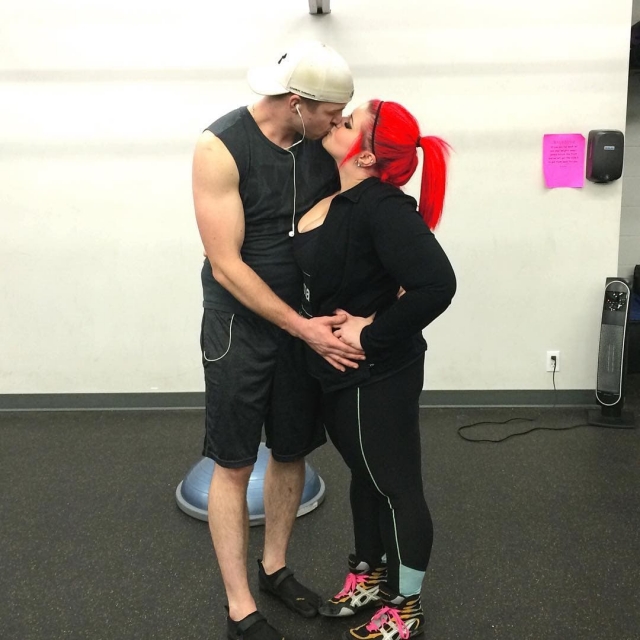
Fitness Goals
Sarah has learned the power of writing her goals down.
“A goal does not exist until it is written down.”
- Decide what you want.
- Put a date on your goal (for extra focus, NOT as a measure of success or failure).
Sarah had a disappointment in her fitness pursuits that turned into a learning experience that gave her freedom from being too hard on herself.
This happened when she attended a professional bodybuilding competition and discovered that some of the physique goals she had were unattainable by natural methods. What she learned behind the scenes changed her perspective entirely.
While this was disappointing at first, in the end it helped her adjust her goals and set new ones with a clear outlook.

Sarah’s Tips for Women Interested In (But Perhaps Scared of) Weight Lifting
- You will NOT get big and bulky! This is such a common fear, and one we’ve heard debunked before (and again, and again).
- Lifting is a fantastic exercise option if you have anxiety or mental health issues.
“It’s a great escape from the noise in your head.”
- It helps to stay grounded and 100% honest with yourself on both the good and bad. Be open to critical feedback if it can help you improve.
- Drink lots of water.
On the water topic: Sarah shares that, when she’s not drinking enough, she feels less energetic and like her thinking is slower. She gets moody easily, forgetful, and finds that it’s easier to fall into depression. It’s “almost like I don’t have the brain power to argue with my anxiety.”
Tips for Growing in Self Awareness
- Write down what you don’t like about your life.
- Write what you’ve done to create a solution for each of those areas.
- If you don’t have a solution, look for one, ask someone, be intentional and focus on finding one.
- Don’t discount any option or idea until you’ve actually tried it.
“Become as self aware as you possibly can. It’s not safe to stay inside your head.”
Resources Discussed in This Conversation
- Book: [easyazon_link asin=”1118509234″ locale=”US” new_window=”yes” nofollow=”yes” tag=”tipsofthescale-20″ add_to_cart=”yes” cloaking=”yes” localization=”yes” popups=”yes”]The 12 Week Year: Get More Done in 12 Weeks than Others Do in 12 Months [Amazon][/easyazon_link]
- Podcast: The Meditation Podcast
Contacting Sarah
- Instagram: @thesarahmoores
- Facebook: fb.com/TheSarahMoores

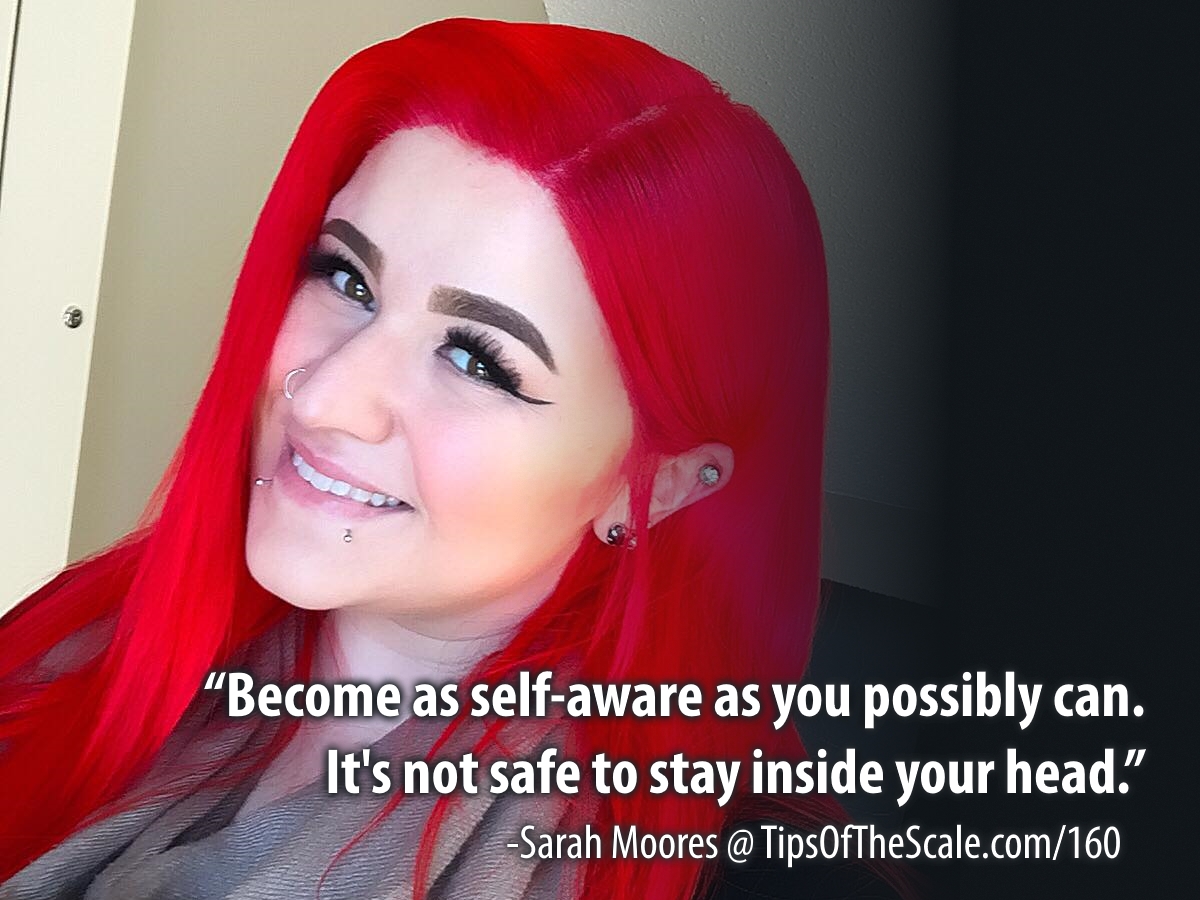
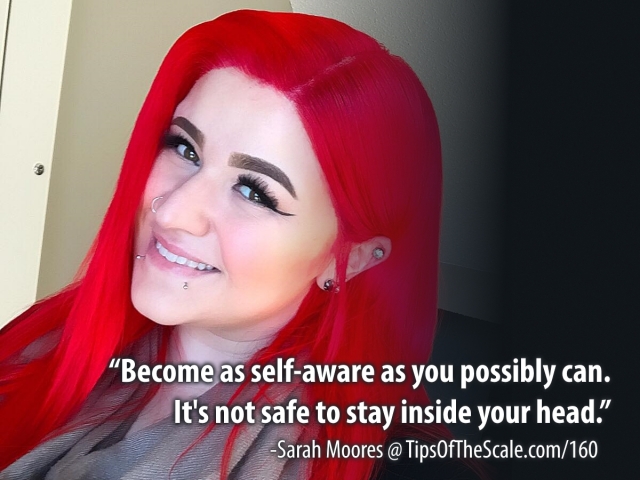
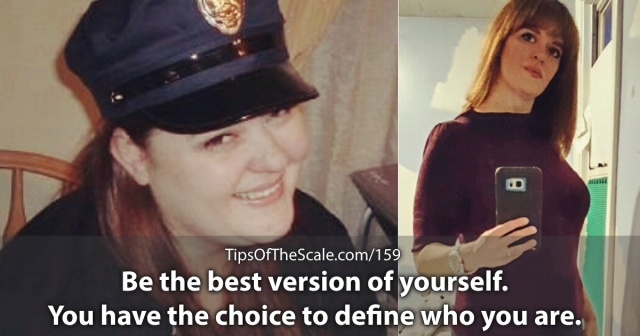
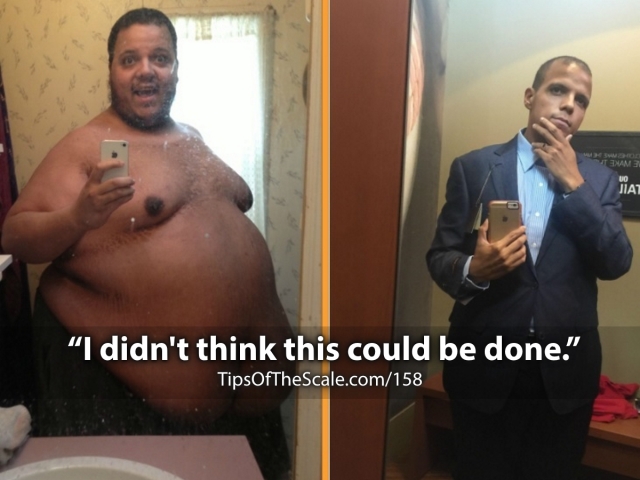
You must be logged in to view comments.